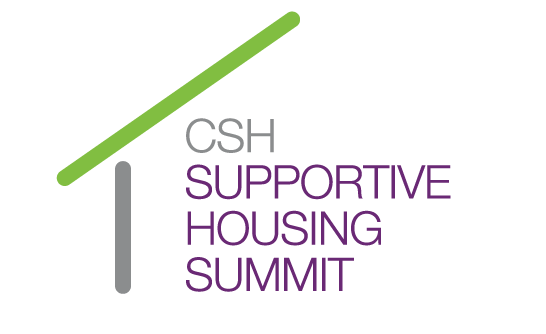A new feature for attendees at CSH Summit 2019 offers interaction with peers, and concrete strategies and tools to implement in your community. The Connecting the Dots Design Labs are all about cross-system solutions, breaking down silos and better serving people in need of supportive housing as well as the community at large.

Participants in each Design Lab receive comprehensive exposure and experience over three-sessions:
- Session I: In the first session, participants take a deep dive into the issue and the complex challenges surrounding it – learning through data, their colleagues and experts.
- Session 2: In the second session, participants explore cutting edge solutions and generate ideas to take back to their communities.
- Session 3: In the third and final session, participants create action plans and presentations designed to garner support back home from critical partners, such as funders and elected officials.
Connecting the Dots Design Labs
Housing and Health Partnerships Can Improve Health Equity
The supportive and affordable housing sector is increasingly partnering with health care to improve systems and outcomes for shared clients. Common ground for these sectors includes enormous obligations, limited resources, vast regulatory requirements, and strong missions to help the most vulnerable in our communities. These sectors are essential partners as communities work toward addressing the issue of building health equity. This Design Lab will help participants forge the relationships necessary to build more equitable systems of care.
(IN)FUSE @ Summit
This Design Lab will empower participants to begin and then scale their own FUSE (Frequent Users Systems Engagement) projects, reorienting communities around a FUSE framework. FUSE is designed to identify, prioritize, and stabilize frequent users across the housing, health, and justice sectors through data sharing and supportive housing. Sessions will blend data analysis and information management techniques, community and peer engagement, and equity approaches with FUSE best practices. What you learn will help you build and grow a comprehensive, inclusive, and effective FUSE project.
Coordinated Entry System Refinement
Sustaining a successful Coordinated Entry System (CES) involves an iterative process that includes: (1) extensive and inclusive community feedback leading to refinements; (2) implementation of enhancements and expansion, and; (3) leadership through a racial equity lens. Join us in this Design Lab to learn the steps to facilitate review and refinement of your CES; how and why to expand your CES to include other mainstream systems; and ways to see data through a racial equity lens to help you use your CES to address inequities in your community.
Keeping Families Together
Keeping Families Together links housing providers with child welfare agencies to strengthen society’s most vulnerable families and protect children. Targeted to both new and experienced leaders in supportive housing, child welfare, and human services, this Design Lab will identify issues surrounding vulnerable families and build on multi-sector solutions that create equitable opportunities and improve outcomes. Explore collaborative implementation and systems realignment strategies, including leveraging the Family First Prevention Services Act, Family Unification Program and other resources.




